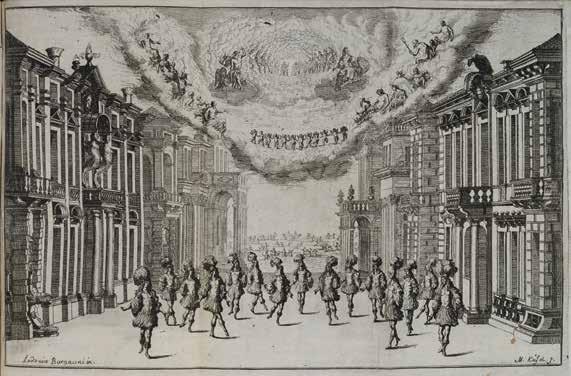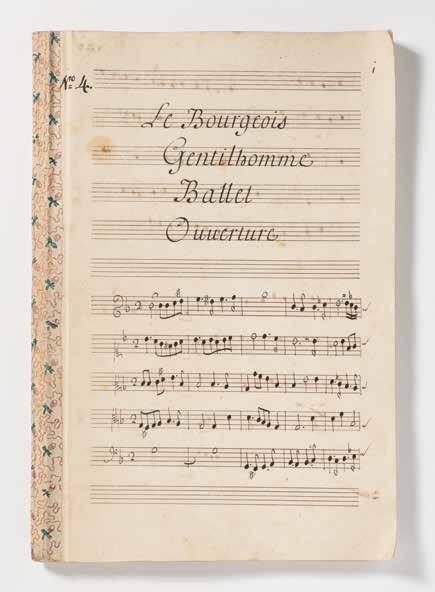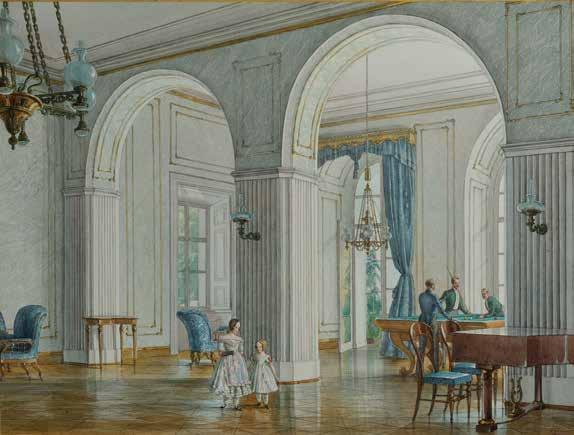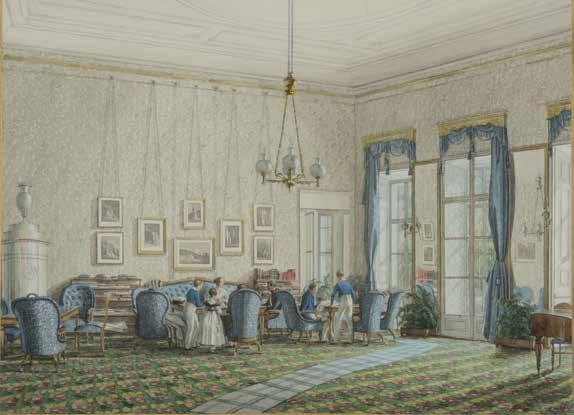
5 minute read
1. Lobkowicz Musical Life in the Late Renaissance and Baroque Eras
Lobkowicz Musical Life in the Late Renaissance and Baroque Eras
1 0 From the period of the Renaissance, Bohemian aristocracy demonstrated a decided affinity for music. Musical training in that era, including theoretical studies as well as practical lessons in the playing of musical instruments, grew increasingly commonplace in the formal education of young noblemen and women. This trend was due in part to ‘cavalier travels’, the voyages of aristocratic young men that usually concluded their formal tutelage. During such tours, Bohemian noblemen encountered the intellectually stimulating milieu of European courts, which employed the most distinguished composers and musicians of the day. Also influential was the humanistic view that music, by cultivating eloquent expression, could play a valuable role in developing intelligent and moral citizens. In this regard the Florentine Camerata, a group of aristocrats and artists of the late Renaissance who employed music to elevate the declamation of dramatic texts, offered a potent exemplar. Such novel vocal experimentation provided a compelling alternative to traditional Renaissance polyphony and engendered the development of a new musical form – opera. At the same time, technological innovations that improved musical instruments led to a new flowering of instrumental music, which for the first time became equal in status to vocal music. Zdeněk Vojtěch Popel, 1st Prince Lobkowicz, and his wife Polyxena (b. Pernštejn), who founded the Roudnice line of the Lobkowicz family, witnessed the birth of this new musical era. As connoisseurs of art and music and thanks to their close affiliations
Map showing Lobkowicz territories in Bohemia, with the Roudnice family line situated in Prag, Raudnitz and Eisenberg; and the Mělník line based in Prag and Melnik. Map by Gilles Robert de Vaugondy, printed in Venice (1777). The Lobkowicz Collections
Eisenberg
Raudnitz
Melnik

Prag
with Italy and Spain, they were particularly well informed about novelties being introduced in the musical centres of southern Europe. Evidence of the couple’s interest in music is preserved in their mutual correspondence, in which hardly any news escaped their notice. In a letter dated 23 May 1626, for instance, Polyxena informs her husband about a scandalous love affair at the imperial court that resulted in the flight of court Kapellmeister (music director) Giovanni Priulli (c.1575–1626). It is also known that they supported a group of musicians to accompany various festive occasions, though we have no information on the size or instrumentation of this ensemble. Polyxena was certainly accustomed to hearing first-class musicians, as her first husband, Vilém of Rožmberk, employed a renowned ensemble at his residence in Český Krumlov. She would surely have been equally demanding in regard to the quality of musicians working for the Lobkowicz family.
The 2nd Prince and only son of Polyxena and Zdeněk Vojtěch, Václav Eusebius, received an intensive musical education. Though he focused most of his energies on his diplomatic and military career, he was nonetheless in frequent contact with music. In 1665, upon his appointment as Hofmeister (court master) to Emperor Leopold I, Václav Eusebius’s responsibilities included the organisation of imperial court opera performances. The Emperor was a great opera lover and talented composer, so it is no wonder that nearly all imperial festivities were accompanied by opera performances. For important occasions, the court printed beautifully engraved libretti – which served as programmes or playbills – and distributed them. Václav Eusebius collected a number of these impressive prints, which often include detailed illustrations of stage sets. It was probably also the 2nd Prince who acquired for the library a rare manuscript entitled Ariette
Scene from the opera Il pomo d’oro by Antonio Cesti (music) and Francesco Sbarra (libretto). Set design by Lodovico Ottavio Burnacini, engraved by Matthäus Küsel (Vienna, 1668). The Lobkowicz Collections.

in musica da diversi maestri, containing a collection of early Italian monodies. This volume, referred to also as the ‘Florentine manuscript’, includes canzonette and arias of the very first operatic works by Jacopo Peri, Orazio Michi, Settimia Caccini and other composers of the Medici court circle.
During his diplomatic career, Václav Eusebius aimed to strengthen the alliance between the Habsburg monarchy and France. His inclination towards French lands and culture was reflected in the education of his children. Thus the cavalier voyage of his eldest son, Ferdinand August, 3rd Prince Lobkowicz, took the young man to Italy and France. There he became a devotee of the lute, an instrument very popular in France at that time, and continued his study of this difficult instrument even after his return home. Archival documents attest that he did not hesitate to send a courier from Vienna to Roudnice to bring him his favourite instrument. Accounting documents also record his generous gifts to an itinerant guitar player and a needy student, who pleased him with their brilliant performing. It was quite possibly Ferdinand August, or alternatively, his son the 4th Prince, Philipp Hyacinth, who brought back from his travels numerous collections of French lute tablatures. Philipp’s younger half-brother, Prince Georg Christian of the Mělník line of the family, was an outstanding violin player, and is known to have taken part with other Austrian nobles in a 1724 performance of Caldara’s opera Euristeo in Vienna. Other notable acquisitions from this period include rare calligraphic manuscript volumes of instrumental and vocal-instrumental music from French tragédies lyriques, the ballets and comedy-ballets composed by Louis XIV’s court composer JeanBaptiste Lully (1632–1687). The volumes also include compositions by Lully’s son, Louis Lully (1664–1734), and by Pascal Collase (1649–1709). These splendid manuscript copies were most likely prepared on commission for the 3rd or 4th Prince Lobkowicz. Though the collection of 17th-century music in the Lobkowicz Music Archive is not extensive, it nevertheless offers numerous rare and remarkable materials for both performing and research.
Manuscript copy of overture from Molière’s Le bourgeois gentilhomme, a comedy-ballet with music by Jean-Baptiste Lully (1670). The Lobkowicz Collections.






